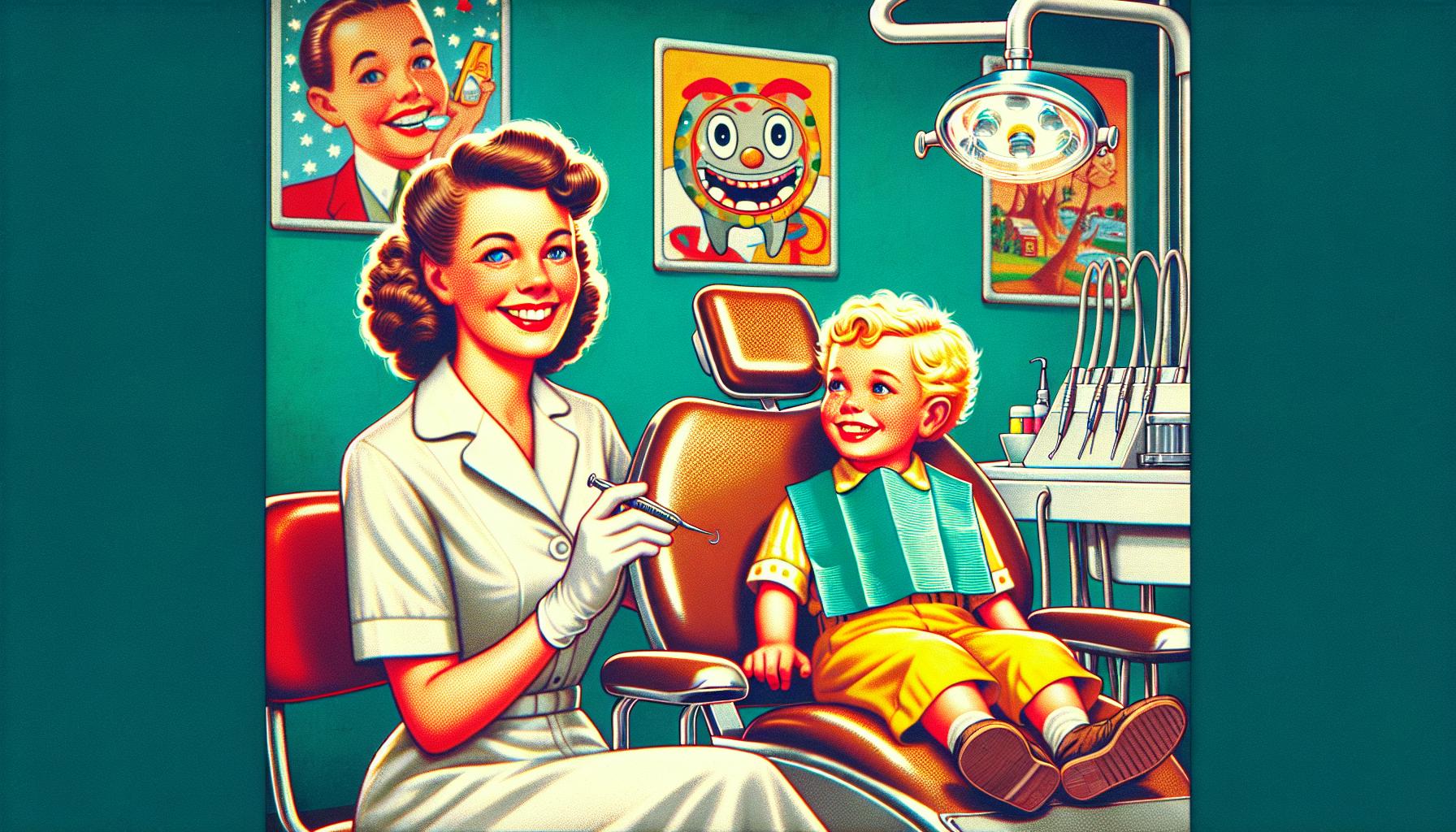When it comes to children’s oral health, choosing the right dentist can make all the difference. Paediatric dentists specialise in the unique dental needs of children, ensuring a comfortable and engaging experience. This article explores the benefits of opting for a paediatric dentist, highlighting why their expertise is crucial for fostering a lifetime of healthy smiles.
Understanding Paediatric Dentistry
Paediatric dentistry focuses on the dental care of children from infancy through adolescence. This specialty addresses the specific dental needs and developmental stages of young patients.
For those seeking expert paediatric dental care, Brisbane Dental Sleep Clinic offers specialised services, including evaluations and treatments that address children’s unique oral health needs.
What Is Paediatric Dentistry?
Paediatric dentistry is a branch of dentistry that exclusively treats children. These dentists undergo additional training beyond general dentistry, equipping them with skills to manage children’s unique dental issues. Treatments include preventive care, cavity management, and addressing orthodontic concerns. They create age-appropriate and child-friendly environments, making visits less intimidating for young patients.
Importance of Specialisation in Children’s Dental Care
Specialisation in children’s dental care is essential for several reasons. Paediatric dentists understand children’s growth patterns and adapt treatments accordingly. They possess techniques to manage dental anxiety in kids, ensuring a positive experience. Routine visits establish healthy habits, and early detection of dental problems leads to more effective interventions. Furthermore, their training includes recognising systemic issues that may affect oral health, providing comprehensive care tailored to individual needs.
Benefits of Choosing a Paediatric Dentist

Choosing a paediatric dentist provides distinct advantages for children’s oral health. These specialists focus on the unique dental needs of younger patients, ensuring a tailored approach to care.
Expertise in Child-Specific Dental Needs
Paediatric dentists possess specialised training that equips them to handle a child’s dental development. They understand the specific oral health requirements from infancy through adolescence. This expertise includes preventive measures tailored to children’s growth patterns and the early identification of dental issues. For instance, they identify potential orthodontic problems early, facilitating timely interventions that can significantly impact long-term dental health.
Creating a Positive Dental Experience
Paediatric dentists are adept at creating a welcoming environment that alleviates dental anxiety. They employ child-friendly techniques to make dental visits enjoyable for young patients. Engaging communication and gentle handling techniques foster a sense of safety and trust in children. Such experiences encourage positive associations with dental care, promoting regular visits and instilling lifelong oral health habits.
When to First Visit a Paediatric Dentist
Preparing a child for their first dental visit is crucial for establishing a foundation for lifelong oral health. Early intervention promotes positive experiences and proactive care.
Recommended Age for First Visit
The recommended age for a child’s first visit to a paediatric dentist is typically by their first birthday or within six months of the first tooth erupting. Early visits allow the dentist to evaluate oral development and provide parents with guidance on proper dental care. The dentist can offer insights on teething, nutrition, and the importance of good oral hygiene.
Signs Your Child Needs to See a Dentist
Several signs indicate that a child needs to see a dentist. Key indicators include:
- Tooth Decay: Visible brown or white spots on teeth suggest decay, requiring professional examination.
- Dental Pain: Complaints of tooth pain or discomfort may signal underlying issues needing attention.
- Swollen Gums: Inflammation or redness around the gums can indicate gum disease or other dental conditions.
- Delayed Eruption: Absence of teeth by age one or failure of primary teeth to erupt as scheduled warrants evaluation.
- Thumb Sucking or Other Habits: Prolonged thumb sucking or use of pacifiers beyond recommended ages can impact dental alignment.
Identifying these signs early facilitates timely intervention and promotes optimal dental health. Regular visits contribute to a child’s comfort and familiarity with dental environments, setting a positive tone for future oral care.
Common Services Offered by Paediatric Dentists
Paediatric dentists provide a range of specialised services designed to meet the unique dental needs of children. Their focus encompasses preventative care, dental treatments, and education, ensuring comprehensive support throughout a child’s development.
Preventative Care and Education
Preventative care is a cornerstone of paediatric dentistry. Paediatric dentists offer dental check-ups every six months, monitoring oral health and identifying issues early. They’ll perform professional cleanings, removing plaque and tartar to prevent cavities. Fluoride treatments strengthen tooth enamel, reducing susceptibility to decay. Sealants, a protective coating applied to the chewing surfaces of molars, further shield against cavities.
Education plays a vital role in preventative care. Paediatric dentists educate parents and children on oral hygiene practices, teaching proper brushing and flossing techniques. They provide guidance on nutrition, highlighting how a balanced diet influences dental health. Through engaging interactions, they instil healthy habits, making oral care a fun and integral part of daily life.
Treatment of Dental Issues in Children
Paediatric dentists address various dental issues that may arise during childhood. They manage cavities with child-friendly techniques tailored to young patients. This includes minimally invasive procedures to ensure comfort and ease during treatment.
In cases of dental trauma—such as chips or fractures—paediatric dentists restore teeth using appropriate methods, ensuring proper healing and aesthetics. They handle issues like misalignment by evaluating the need for orthodontic intervention. Early orthodontic assessments can identify potential problems, promoting timely treatment that guides proper jaw development.
Overall, paediatric dentists ensure that every child receives careful management of their dental health, fostering a foundation for a lifetime of healthy smiles.
Conclusion
Choosing a paediatric dentist is a vital step in ensuring a child’s oral health journey is both effective and enjoyable. With their specialised training and understanding of children’s unique needs, these professionals create a supportive environment that encourages positive dental experiences. Early visits and tailored preventive care set the foundation for lifelong oral health habits. By prioritising a paediatric dentist, parents can help their children develop a healthy relationship with dental care, making it a seamless part of their lives. Investing in a child’s dental health today paves the way for bright smiles in the future.
Frequently Asked Questions
What is a paediatric dentist?
A paediatric dentist is a specialist focusing on the dental care of children, from infancy to adolescence. They have additional training beyond general dentistry to handle children’s unique dental needs and behaviours, ensuring a comfortable experience.
Why should I choose a paediatric dentist for my child?
Paediatric dentists specialise in children’s dental health, employing techniques that make dental visits enjoyable. They are trained to manage specific issues like cavity prevention and orthodontic assessments, fostering good oral health habits from a young age.
When should my child first visit a paediatric dentist?
It’s recommended that a child has their first dental appointment by their first birthday or within six months of the eruption of their first tooth. Early visits allow for monitoring of oral development and guidance on dental care.
What signs indicate my child needs to see a dentist?
Signs that your child may need to see a dentist include visible tooth decay, dental pain, swollen gums, delayed tooth eruption, or prolonged thumb sucking. Recognising these signs early facilitates timely treatment.
What services do paediatric dentists offer?
Paediatric dentists provide a range of services, including preventive care, dental treatments, and oral health education. They focus on routine check-ups, professional cleanings, fluoride treatments, and teaching proper hygiene to create positive dental habits.
How do paediatric dentists make dental visits comfortable for children?
Paediatric dentists use child-friendly techniques and communication to alleviate anxiety. They create a welcoming environment that fosters trust and safety, helping children feel at ease during their visits.
What preventive measures do paediatric dentists recommend?
Preventive measures include regular dental check-ups, fluoride treatments, sealants, and guidance on proper oral hygiene and nutrition. These strategies aim to protect children from cavities and other dental issues as they grow.
How can I help my child maintain good oral hygiene?
Encourage your child to brush twice daily with fluoride toothpaste, limit sugary snacks, and floss regularly. Routine dental visits to a paediatric dentist also help reinforce good hygiene habits and monitor dental health.
